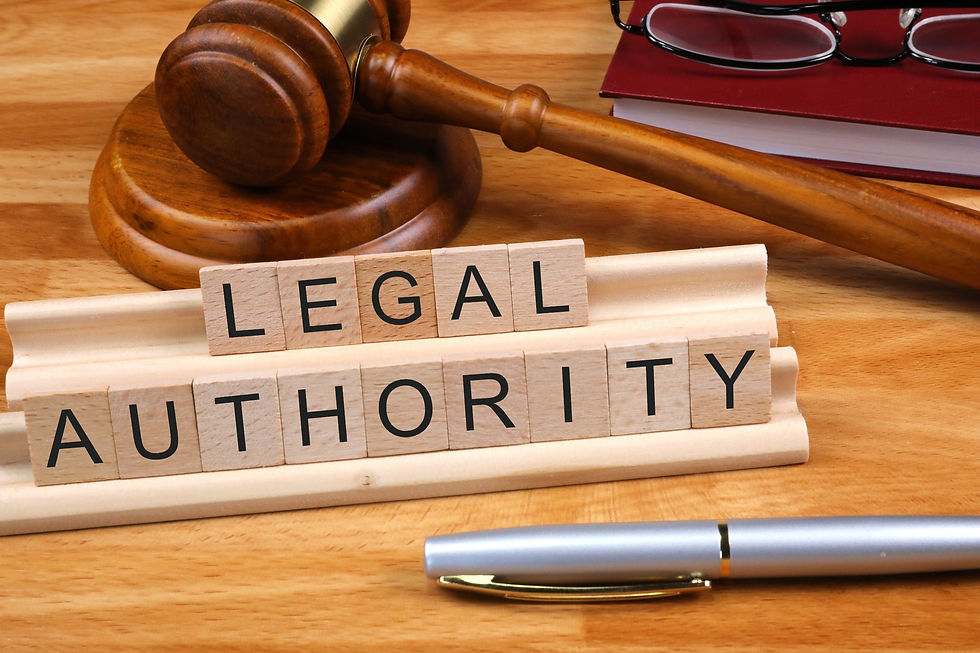Can You Claim Surplus Funds on Behalf of a Minor or Disabled Relative?
- Hazel Karen Nicolas Gonzales
- Jul 1, 2025
- 3 min read

Foreclosure and tax sales can be devastating, especially when they impact vulnerable individuals like minors or relatives with disabilities. But if a home was sold and generated surplus funds, those funds still belong to the legal owner—even if that person can’t claim them on their own.
So, what happens when a child or disabled relative is entitled to those funds?
Can someone else claim it on their behalf?
Yes—but there are specific legal requirements you need to know.
This blog will walk you through the process, your responsibilities, and how to avoid delays or complications when claiming surplus funds for someone who can't do it themselves.
💰 What Are Surplus Funds?
Surplus funds (also known as excess proceeds) are the money left over after a foreclosed property is sold and all debts, taxes, or liens are paid off. For example:
Property sold at auction: $190,000
Outstanding mortgage: $140,000
Surplus funds: $50,000
These funds legally belong to the property’s former owner—or their estate, if the owner is deceased. If the owner is a minor or someone with a disability, the funds can still be claimed, but it must be done through a legal representative.
👶 Can You Claim Surplus Funds for a Minor?
Yes, but you must follow certain legal procedures. Since minors (anyone under 18) cannot enter contracts or file legal claims on their own, the court requires a parent or legal guardian to act on their behalf.
What You’ll Need:
Proof of your relationship to the minor (e.g., birth certificate)
Court-approved guardianship (if required in your state)
Court approval to file and receive the funds in the minor’s name
Documentation related to the property and the foreclosure/tax sale
In many jurisdictions, the court may hold or restrict access to the funds until the child turns 18, placing the money in a protected trust or account to ensure it’s used appropriately.
♿ What About Claiming for a Disabled Relative?
If your relative is mentally or physically unable to manage their financial affairs, you may be able to claim surplus funds on their behalf—but only if you are their legal guardian or have power of attorney (POA).
What You May Need:
Court-issued guardianship papers or power of attorney documents
Medical evidence showing the person’s inability to manage their affairs (in some cases)
Proof of ownership or heirship to the property
Identification for both parties
In certain cases, the court may require additional oversight, especially if the surplus funds are substantial.

⚖️ Why Legal Authority Matters
Even if you're a close family member, you can’t legally claim surplus funds for someone else unless you have the appropriate legal status. This protects the rightful owner from fraud, mismanagement, or unauthorized use of their money.
Courts and county agencies will reject any claim made without valid authority—which could delay or even forfeit your ability to recover the funds.
✅ How Surplus Refund LLC Can Help
At Surplus Refund LLC, we understand the complexities of filing surplus funds claims on behalf of others—especially minors or individuals with special needs. Our team can:
Review your case to confirm eligibility
Help you obtain and organize legal documents (guardianship, POA, affidavits)
Prepare and file the claim securely and correctly
Work with courts and agencies on your behalf
Ensure the funds are protected and properly handled
We charge no upfront fees, and we only get paid if we successfully recover funds for you or your loved one.
📝 Final Thoughts
Yes, you can claim surplus funds on behalf of a minor or disabled relative—but the process requires careful attention to legal requirements. With the right documents, guidance, and representation, you can protect their rights and recover what’s rightfully theirs.
Don’t go it alone. 📞 Contact Surplus Refund LLC today to ensure the process is handled with care, legality, and compassion.





Comments